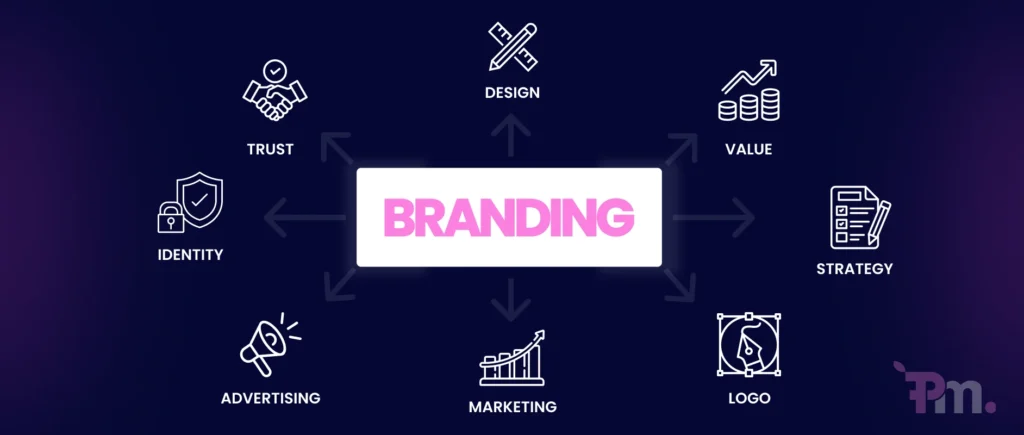Blogging for SEO: Why Your Business Needs a Blog
Imagine searching for a product or service online, but your business doesn’t show up on Google, meanwhile, your competitors dominate the search results.
A strong online presence is no longer optional for Australian businesses, it’s essential. Whether you run a local café, an eCommerce store, or a professional service, your customers are looking for solutions online.
Search Engine Optimisation (SEO) plays a crucial role in ensuring your business gets found, and one of the most powerful ways to boost SEO is through blogging.
A well-structured blog helps businesses:
- Rank higher on search engines by targeting relevant keywords
- Build authority by sharing valuable insights and expertise
- Engage customers with informative and helpful content
- Convert visitors into leads by fostering trust and credibility
Let’s explore why blogging is a must-have for SEO, how it helps your business grow, and the long-term benefits of investing in high-quality content.

Ask Us How We Can Help Your Business Stand Out Online.
- Web Design & Development - make it easy for customers to find you.
- SEO - unlock more SEO traffic. See real results.
- Paid Media - effective paid strategies with clear ROI.
- Content Marketing - our team creates epic content that will get shared, get links, and attract traffic.
How Blogging Improves SEO & Boosts Online Visibility
Blogging is a powerful way to enhance SEO and increase online visibility. Search engines prioritise fresh, relevant content, and blogs help businesses stay active in search rankings.
Fresh Content & Search Engine Rankings
Google favours websites that regularly update their content, and blogs provide an easy way to keep your site fresh. Each new post gives you a chance to target new keywords, including long-tail queries relevant to your industry.
For example, an Australian eCommerce brand writing about “Best Sustainable Packaging for Online Businesses” can rank for packaging-related searches.
More Indexed Pages = Better Discoverability
Every blog post adds a new indexed page, increasing the chances of ranking for different search queries. Google crawls websites more frequently when fresh content is published, improving search visibility.
Internal Linking & SEO Structure
Blogs allow businesses to internally link to key pages, strengthening SEO structure. This helps boost page authority and improves user navigation, keeping visitors engaged longer.
Establishing Authority & Building Brand Trust

Blogging helps businesses build trust and establish themselves as industry leaders. By sharing valuable insights, businesses can demonstrate expertise and gain credibility, making customers more likely to choose their services.
Thought Leadership in Your Industry
Consistently publishing informative and well-researched blogs positions your business as a trusted expert. For example, a local law firm writing about “Understanding Property Laws in Australia” can attract clients seeking reliable legal advice.
E-E-A-T & Google’s Trust Signals
Google prioritises content that reflects Experience, Expertise, Authority, and Trustworthiness (E-E-A-T). Well-researched blogs with credible sources help improve search rankings and brand reputation.
Attracting Natural Backlinks
High-quality content gets referenced by other websites, improving domain authority and SEO. For instance, a fitness blog on “Best Nutrition Plans for Australian Athletes” may be cited by health and wellness websites, increasing visibility and credibility.
Engaging Your Target Audience & Increasing The Time A User Spends On Page

A well-written blog keeps visitors engaged, encourages them to explore your site, and improves SEO by increasing the time spent on page.
Creating Valuable & Relevant Content
Understanding what your audience is searching for allows you to create content that answers their questions. For example, a real estate business writing blogs like “How to Buy Your First Home in Sydney” attracts first-time homebuyers looking for guidance.
Reducing Bounce Rate & Increasing Time on Site
Blogs keep users engaged by offering valuable insights, leading to longer time spent on your site. Listicles, guides, and case studies make content easier to digest and encourage readers to stay longer, improving SEO performance.
Encouraging Social Sharing & Engagement
Blogs can gain social media traction when shared on platforms like Facebook, LinkedIn, or Twitter. Adding share buttons and clear calls-to-action (CTAs) encourages readers to interact, comment, and spread your content further.
Supporting Content Marketing & Multichannel Promotion

Blogging doesn’t just boost SEO, it also supports content marketing across multiple platforms, helping businesses reach a wider audience.
Repurposing Blog Content for Other Platforms
A single blog post can be repurposed into social media posts, email newsletters, infographics, and video scripts. For example, a fitness brand can repurpose a blog on “Top Workout Trends for 2025” into Instagram reels, YouTube tutorials, or Twitter threads to engage different audiences.
Boosting Email Marketing with Blog Content
Blogs provide valuable content for email newsletters, helping businesses drive website traffic. For instance, an Australian skincare brand might send a monthly email featuring “Winter Skincare Tips from Dermatologists”, encouraging readers to visit their site for more insights.
Leveraging Blog Content for Paid Ads & Lead Generation
Businesses can use blogs as lead magnets in paid ad campaigns. For example, offering a “Free SEO Checklist” in exchange for email sign-ups turns blog readers into potential customers.
Long-Term SEO Benefits & Sustainable Traffic Growth
Unlike paid ads, which stop bringing results once the budget runs out, blogging provides long-term SEO benefits by driving sustainable organic traffic over time.
Evergreen Content = Continuous Traffic
Evergreen content remains relevant and valuable long after it’s published. Unlike trending topics, which fade quickly, evergreen blogs continue to attract visitors for years. For example, a financial planning blog on “How to Save for Retirement in Australia” remains useful regardless of trends.
The Compounding Effect of Blogging
The more consistently you blog, the more your website gains authority and traffic over time. A local accounting firm that committed to regular blogging saw a 300% traffic increase within 12 months, proving its long-term value.
Conclusion
Blogging is a powerful tool for improving SEO, building brand authority, and driving long-term organic traffic. By consistently publishing valuable content, businesses can boost their search rankings, engage their audience, and generate leads.
Whether it’s increasing online visibility, establishing trust, or supporting content marketing efforts, blogging plays a crucial role in digital success.
If you want professional blogging services to enhance your SEO strategy, contact Passionfruit Media today!
Passionfruit Media is a leading Australian digital marketing agency that helps Australian business owners achieve their online marketing goals through a range of services including website design, website development, SEO (Search Engine optimisation), Google Ads, AI Marketing, Content Marketing and a range of other digital marketing solutions.










